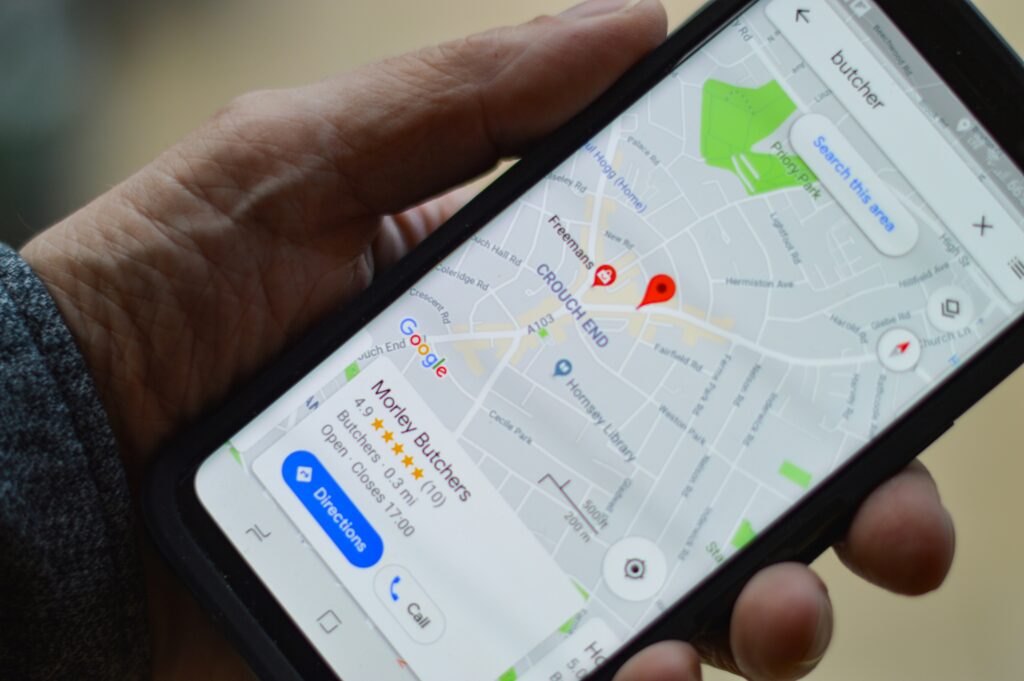In the ever-evolving landscape of digital marketing, local businesses are constantly seeking ways to stand out in the crowded online marketplace. Gone are the days when simply stuffing your website with local keywords would guarantee top search rankings. Today, Google’s sophisticated search algorithms have shifted dramatically, moving beyond simple keyword matching to a more nuanced, context-rich approach centered on entities.
But what exactly does this mean for local businesses struggling to capture the attention of nearby customers? The answer lies in understanding and mastering the concept of entities in local search. No longer are search results purely about matching exact phrases. Instead, Google now interprets businesses as complex, interconnected information nodes—entities that exist within a broader context of local, industry, and user-specific signals.
Understanding Entities in Local Search
When we talk about “Decoding Entities in Local Search,” we’re really looking at how Google and other search engines figure out what businesses are all about. An entity isn’t just a business listing or a bunch of keywords; it’s a complete digital picture of a business that includes several important parts:
- Name, Location, and Services: The basic details like a business’s name, address, and what it offers are super important. This information must be the same everywhere online, so search engines can easily recognize the business.
- Reputation: Customer reviews and ratings are crucial for a business’s reputation. Search engines look at how many reviews there are and how good they are to see how well a business is seen in the community.
- Online Relationships: The connections a business has with other local organizations—like other businesses, community groups, or local influencers—are vital for its standing in the area. Google checks these relationships to see how connected the business is to the community.
- Complete Online Presence: Google wants to see a full view of the business. It checks the business’s Google Business Profile, website, local mentions, and social media activity. The goal is to figure out if the business is trusted and authoritative in its field.
- Value to Local Customers: Google’s main aim is to give users valuable search results. Because of this, it looks at whether a business provides real value, which can mean great service, unique products, or community involvement.
This change in local search means that just having an online presence isn’t enough anymore. Businesses need to actively create a strong online identity that shows their importance and value in the local market. To be successful, they should consistently share clear and helpful information across all platforms and engage positively with their community. This smart strategy not only helps improve search rankings but also builds lasting relationships with local customers.
Google Business Profile (GBP) Optimization Strategies
The Google Business Profile (GBP) is really important for making sure your business shows up in local search results. It’s not just a simple listing; it’s a key tool that helps Google understand how relevant your business is. Setting it up properly takes some careful attention to detail. Here are some key points to consider:
- Choose the Right Category: Start by selecting the best category for your business. Instead of just picking a general category, dive deeper to find the most specific one that truly fits what you do.
- Complete Your Profile: Filling out your GBP isn’t just about inputting basic info. Each part of your profile is a chance to strengthen how Google views your business. Make sure your business name, address, and phone number are the same everywhere online—this is called NAP consistency.
- Use Quality Photos: Upload professional, high-quality photos that highlight what makes your business unique. Great visuals can attract more customers and give them a feel for what to expect.
- Engage with Customers: How you interact with customers is super important. Responding to reviews is more than just good customer service; it also helps show Google that you’re active and engaged. Try to reply to every review within 24-48 hours, whether it’s a positive or negative comment. Use these replies to convey your business’s personality and commitment to customer satisfaction.
- Post Regular Updates: Keep your GBP lively by sharing regular posts about events, promotions, or news about your business. Tools like Google Posts let you highlight special offers or community activities, showing Google that your business is active and relevant.
- Keep It Fresh: Treat your GBP like a living representation of your business. Regularly update it with new photos, current hours, or new services you offer. This tells Google that your business is up-to-date and dedicated to providing accurate information to customers.
Regularly updating it and interacting with customers helps Google understand your business better, which can improve your visibility in local searches. Keeping everything current, consistent, and engaging is key in a world where search engines favor fresh and relevant information.

Additional Tip: Avoid these common GBP Mistakes
However, even with the right strategies, businesses can make common mistakes that hinder their local SEO efforts. Recognizing these pitfalls is vital for maintaining a strong Google Business Profile and improving visibility in local searches. Below is a table highlighting frequent errors, their consequences, and tips on how to avoid them. By being aware of these missteps, you can enhance your online presence and boost your local search rankings.
| Common Mistake | Description | Consequence |
| Inconsistent NAP Information | Not keeping the Name, Address, and Phone number the same across all platforms. | Confuses customers and search engines, lowering visibility. |
| Generic Category Selection | Choosing a broad category instead of a specific one. | Limits Google’s understanding of your business’s niche. |
| Neglecting Customer Reviews | Failing to respond to reviews, both positive and negative. | Missed opportunities for engagement and can hurt reputation. |
| Not Utilizing GBP Features | Overlooking posts, questions and answers, or service descriptions. | Reduces the profile’s ability to attract and inform customers. |
| Low-Quality Photos | Using blurry or unprofessional images. | Diminishes the business’s perceived quality and trustworthiness. |
| Irregular Updates | Not regularly updating information like hours or services. | Leads to customer frustration and discredits online presence. |
| Ignoring Local SEO Best Practices | Not optimizing the website and content for local search terms. | Low visibility in local search results. |
| Underestimating the Importance of Engagement | Failing to interact with customers on social media or through the GBP. | Missed opportunities to build community and loyalty. |
| Neglecting Analytics | Not checking Google Insights or analytics for performance data. | Missed insights on customer behavior and profile effectiveness. |
| Omitting Important Business Details | Forgetting to include critical information like business hours or services offered. | Potential customers may overlook the business due to a lack of information. |
Schema Markup: The Technical Backbone of Entity Optimization
Schema markup represents the hidden language that helps search engines understand the intricate details of your business with unprecedented precision. Think of it as a detailed blueprint that translates your business’s complex information into a format that Google can easily comprehend and interpret. While invisible to website visitors, schema markup provides a critical layer of semantic information that dramatically enhances how search engines perceive and represent your business entity.
For local businesses, implementing local business schema is not just a technical exercise—it’s a strategic imperative. The most effective schema implementations go beyond basic business information, providing rich, contextual details about your services, operating hours, location, and unique value propositions. Local businesses should focus on specific schema types that include LocalBusiness, Organization, and specialized schemas relevant to their specific industry. For a restaurant, this might include detailed menu information, while a medical practice might incorporate additional healthcare-specific schema elements.
Content Strategy for Entity Optimization
Content has evolved from a keyword-stuffing exercise to a sophisticated method of establishing your business’s topical authority and entity relevance. The most effective local content strategies now focus on creating deeply contextual, locally relevant material that demonstrates genuine expertise and connection to the community. This means moving beyond generic service descriptions to develop content that speaks directly to local customers’ needs, challenges, and interests.
Location-specific pages become critical in this approach. Rather than a single, generic website, businesses should develop nuanced pages that speak to different local areas they serve, each with unique, tailored content that reflects the specific characteristics of those communities. For a multi-location business, this might mean creating distinct pages for each location that highlight local team members, community involvement, and area-specific services. These pages serve a dual purpose: they provide valuable information to potential customers and send strong entity signals to search algorithms about the business’s local relevance and expertise.
The key is to create content that goes beyond mere description and instead tells a story. Showcase local team members, highlight community involvement, share local client success stories, and provide genuinely helpful, area-specific information. Each piece of content should aim to position your business not just as a service provider, but as an integral part of the local ecosystem. This approach transforms your content from simple marketing material into a powerful tool for establishing your business as a authoritative, trustworthy local entity.
Technical and Engagement Signals
Beyond content and profile optimization, technical elements play a crucial role in establishing your local entity’s digital presence. Website optimization has become increasingly complex, with mobile responsiveness emerging as a critical ranking factor. Google prioritizes businesses with mobile-friendly websites that provide seamless user experiences across devices. This means implementing responsive design, ensuring fast load times, and creating intuitive navigation that works equally well on smartphones and desktops.
Local citations—mentions of your business name, address, and phone number across various online platforms—act as critical validation points for your business entity. Consistency is key. Discrepancies in business information across different platforms can confuse search algorithms and potentially harm your local search rankings. Conduct regular audits of your online listings, ensuring that your NAP (Name, Address, Phone) information remains identical across directories, review sites, and social media platforms.
Advanced Entity Optimization Techniques
The most sophisticated local SEO strategies go beyond basic optimization, focusing on building a comprehensive digital ecosystem. This means developing relationships with local businesses, getting mentioned in local news outlets, and creating a web of authoritative local connections. Participate in local events, seek out local business partnerships, and actively engage with your community both online and offline.
Cross-platform consistency becomes paramount. Your business should present a unified identity across Google Business Profile, social media platforms, industry-specific directories, and your website. Each platform should reinforce the same core messaging, visual branding, and business information. This consistent approach helps Google build a more comprehensive understanding of your business entity.
Measurement and Continuous Improvement
Local SEO is not a set-it-and-forget-it strategy. Continuous monitoring and adaptation are essential. Utilize tools like Google Search Console, Google Analytics, and local ranking tracking software to understand your performance. Pay attention to key metrics such as:
- Local search rankings
- Website traffic from local searches
- Engagement rates on your Google Business Profile
- Review quantity and quality
- Click-through rates on local search results
Mastering local search in the era of entity-based optimization requires a holistic, strategic approach. It’s no longer sufficient to focus on simple keyword optimization. Businesses must develop a comprehensive digital strategy that presents a clear, consistent, and valuable entity to both search algorithms and potential customers.
The future of local search belongs to businesses that can effectively communicate their unique value, demonstrate local expertise, and build a robust, interconnected online presence. By understanding and implementing entity-based optimization strategies, local businesses can not just improve their search rankings, but truly become authoritative voices in their local markets.
Give us a call and let us audit your current online presence and help you develop a website growth strategy for 2025!


